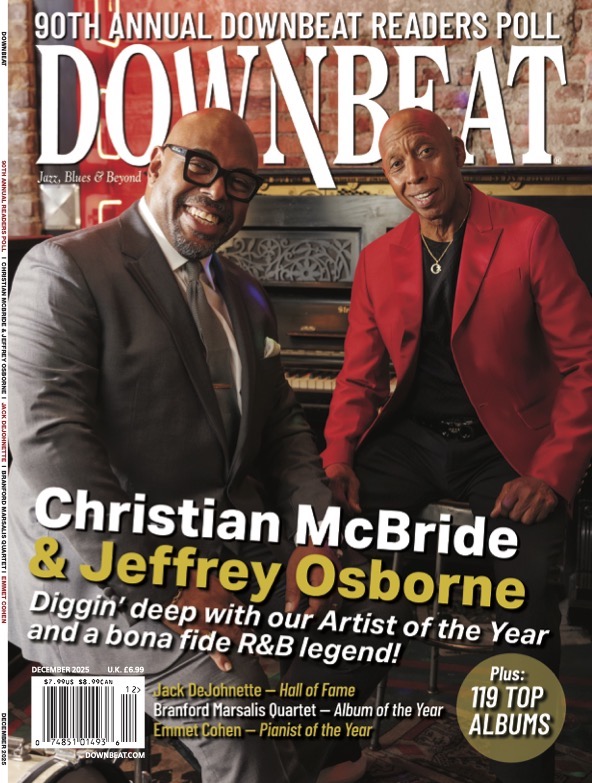By Ed Enright | Published December 2025
The Copenhagen-based instrumental trio Ibrahim Electric has been riding a musical heat wave in 2025, electrifying audiences at jazz festivals across Europe this summer, blazing through a series of wildly energetic livestreamed Miniature Concerts on small instruments throughout the fall and finally releasing their first full-length studio recording in five years. Fast Fire, out Dec. 6 on the sleeve.fm platform and available digitally and on vinyl, is the 23-year-old group’s most explosive recording yet. The 10-track program taps into the groove-heavy, feel-good energy of Ibrahim Electric’s hard-hitting live shows, delivering the band’s intense signature blend of soul, R&B, rock, punk, afrobeat, straightahead jazz, free-jazz, dramatic balladry and raw jam-band energy. These three veteran Danish instrumentalists — guitarist Niclas Knudsen, Hammond B-3 organist Jeppe Tuxen and drummer Stefan Pasborg — have established reputations in Europe as highly versatile practitioners of their respective instruments. Together, their chemistry is downright combustible, as I witnessed earlier this year during Bohemia Jazz Festival sets in Prague and Plzn, Czech Republic, where revelers young and old couldn’t stand still once the band struck a groove. Passionate extroverts, Ibrahim Electric brings everything in its bag out into the open: Waves of John Scofield, Mike Stern, Ali Farka Touré, Jimi Hendrix Experience, Santana, James Brown, Booker T. and the MG’s, the Doors, John Coltrane, Stanley Turrentine, 1950s surf music, Oscar Pettiford, Jimmy Smith, Roy Haynes and Art Blakey stir your soul and resonate deep within your body. The freedom-embracing trio’s fiery approach to performing original material is exhilarating and contagious, their vibe chill and welcoming. From the catchy, swinging riffs of “Shuffle Corn” to the galloping, minor-key Western soundscape of “Cheyenne,” the mysterious tones and twisted lines of “Hidden Bandit,” the futuristic, snake-charming enchantment of “Flambino” or the title track’s bubbling caldron of hard-bop elixir, there’s plenty of enticing and rewarding music on Fast Fire to fan your internal flame, warm your heart and satisfy that burning appetite for a piping-hot serving of invigorating jazz with everything on it. Expect Ibrahim Electric to perform songs from the new album along with fan favorites from the trio’s expansive repertoire during record release concerts Dec. 10–11 at Hotel Cecil, one of the premier live music venues in central Copenhagen.






